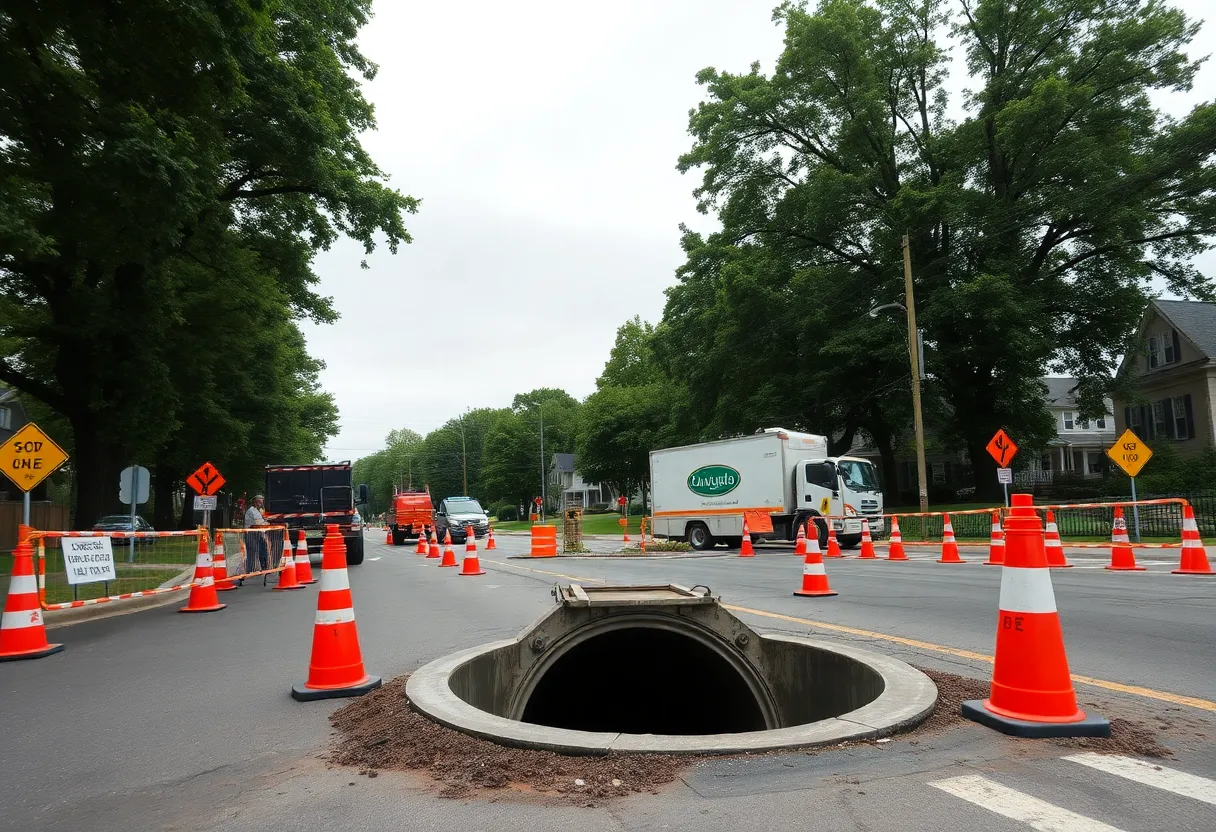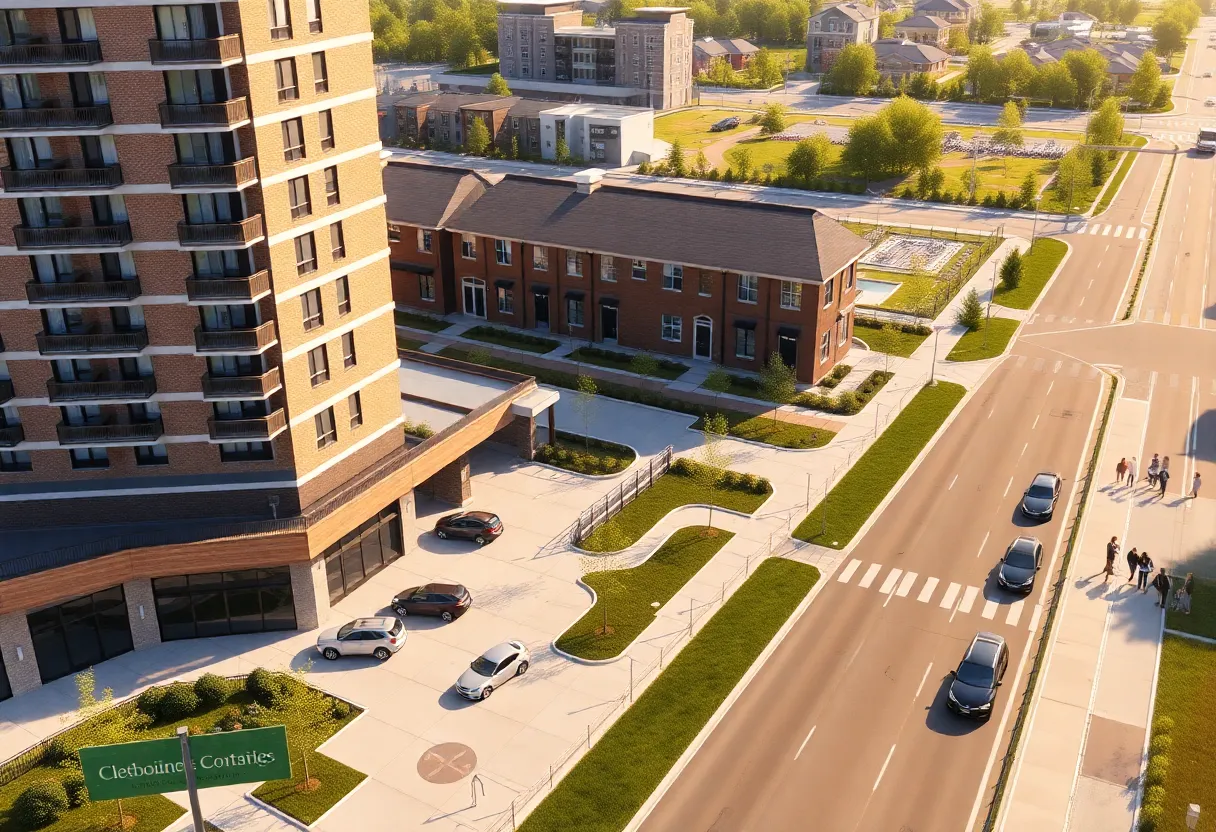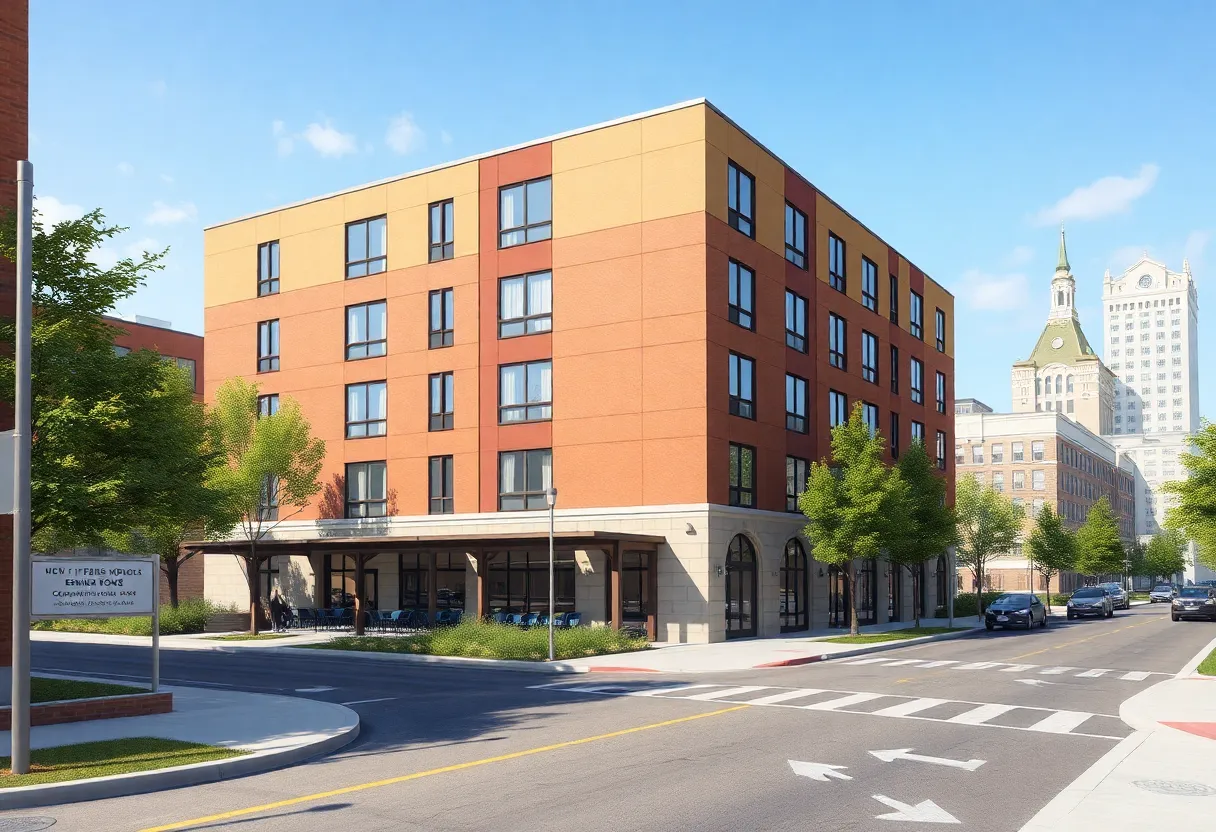, September 8, 2025
News Summary
Princeton’s council will consider borrowing $6.3 million from the New Jersey Infrastructure Bank to fund the Mini‑System 36 sewer rehabilitation covering neighborhoods bounded by John, Ewing, Mount Lucas and Quarry streets. The work uses trenchless methods, non‑toxic grout injections, selective lining and replacements to cut groundwater and rainwater infiltration, lower treatment costs and extend pipe life. The agenda also includes a Hamilton Avenue sewer replacement up to $409,670. Budget pressures and a multi‑year capital plan could raise sewer fees gradually. A court order is temporarily blocking rescission of a separate $2.75 million contract after a contractor lawsuit.
Council to Vote on $6.3 Million Loan for Mini‑System #36 Sewer Rehab; Hamilton Avenue Replacement Also on Agenda
The municipal governing body will vote at 7 p.m. on Sept. 8 on borrowing $6.3 million through the Construction Financing Loan Program of the New Jersey Infrastructure Bank (NJIB) to fund the Mini‑System #36 Sewer Rehabilitation Project. The loan would finance repairs across most of northern Princeton, serving the area bounded by John Street, Ewing Street, Mount Lucas Road and Quarry Street. The council will also consider approving a sanitary sewer replacement on Hamilton Avenue that could cost up to $409,670.
Why this project matters now
The Mini‑System #36 work is intended to reduce the town’s wastewater treatment bills by stopping clean groundwater and rainwater from entering the sanitary sewer system. Recent assessments indicate that 40–50% of total sewer flow in some areas comes from unwanted infiltration and inflow. The project will focus on sealing pipe joints and cracks by injecting a non‑toxic chemical grout, limiting the need for more invasive future repairs and reducing costly treatment volumes sent to the regional plant.
Funding and budget context
This borrowing request follows previous council authorizations for sewer financing in June 2023 and June 2024. Town financial documents show sewer system expenses rose from $1,297,545 in 2024 to $1,452,526 in 2025, an increase of $154,981. The 2025 municipal budget newsletter cited inflationary pressures on payments for sewerage treatment as a contributing factor to higher taxes and budget increases. Funding to the regional treatment authority increased by about $211,863 from 2024 to 2025 and is partially supported by local taxes.
University contributions and local revenue
The municipality’s planning and budgets have also factored in a multi‑year contribution pledge from a local university that included both unrestricted municipal support and money earmarked for infrastructure projects, with a portion specifically directed to sewer repairs. In the prior year, the university paid municipal property and sewer taxes and made voluntary contributions, including a dedicated sum for sewer infrastructure — the first year a donation was explicitly designated for sewer maintenance apart from taxes.
Project details and coordination
The Mini‑System #36 project will rely on earlier flow‑metering data from 2017–2019 to prioritize work. Repairs include trenchless grouting where possible to limit excavation, and any replacement that requires manhole or road openings will generally be timed with street reconstruction to minimize repeated road disruptions. The town is coordinating sewer work with other underground utility projects to avoid reopening recently repaired roads.
Broader sewer plan and future costs
An informational plan presented earlier projects an average annual need of about $7.25 million for the next nine years to replace mains, reduce inflow and infiltration (I&I), repair trunk lines and pump stations and renew vehicles and equipment. An additional roughly $3 million per year was identified to catch up on deferred maintenance. If the plan proceeds, projections indicated that sewer fees assessed on tax bills for homes on sewer could rise gradually; the plan estimated rising fees that would help cover debt service and operations through 2031, with the goal that once deferred work is completed the annual sewer capital need would drop to around $6.5 million.
System condition and operational work
Princeton’s sewer network runs roughly 130–150 miles. Much of the older piping has not been converted to modern PVC and lies under hard rock, which makes groundwater accumulation and leaks more likely. The town’s approach favors pre‑emptive replacement before pipes reach the end of useful life to avoid emergency repairs and higher costs later. Multiple small “mini‑system” I&I projects are designed to be minimally disruptive and often take place in easements or unpaved rights‑of‑way.
Pump stations and other projects
The municipality is analyzing several pump stations that are near or at the end of their service life, including All Saints, Crooked Tree, Herrontown, Mercer, Winfield, and Pretty Brook. The evaluation will inform designs and resiliency upgrades, which are especially important given past storm events that stressed the system.
Contractor lawsuit and temporary restraining order
A recent court action put a temporary halt to the town’s attempt to rescind a multimillion‑dollar sewer contract with a contractor for work on Spruce Street and Linden Lane. The court issued a temporary restraining order blocking cancellation of the contract pending further proceedings after the contractor filed suit. The dispute grew from discovery of a container with bags of asbestos‑containing material at a town facility and competing accounts about handling and responsibility. The judge overseeing the case instructed both sides to confer on next steps while noting potential harms that could follow contract cancellation before work has begun.
Other recent contract awards
The council approved a separate contract for street improvements on Alexander Street, Dickinson Street and University Place, awarding the work to a local contractor after reviewing three bids. That contract will be partly offset by a state municipal aid grant.
Next steps
The council’s votes on the NJIB loan for Mini‑System #36, the Hamilton Avenue sewer replacement, and other capital resolutions are scheduled for 7 p.m. on Sept. 8. If approved, projects will move to detailed bid and construction phases in coordination with road work and utility schedules.
Frequently Asked Questions
What is the Mini‑System #36 project?
Mini‑System #36 is a targeted sewer rehabilitation covering the area bounded by John Street, Ewing Street, Mount Lucas Road and Quarry Street. The work aims to seal leaks and reduce groundwater inflow into the sanitary sewer.
How will the project be funded?
The council is being asked to borrow $6.3 million through the New Jersey Infrastructure Bank Construction Financing Loan Program. The town previously authorized related borrowing in June 2023 and June 2024.
Will sewer bills or taxes rise because of this work?
Sewer system costs have already increased in recent budgets, and long‑term planning projects increased fees may be needed to cover debt service and operations through 2031. The town projects a return to lower annual capital needs once deferred maintenance is caught up.
What disruptions should residents expect?
Many inflow and infiltration repairs are trenchless and minimally disruptive. Where excavation is required, work will be coordinated with road reconstruction to limit repeated disturbances. Short‑term roadway and household disruptions can occur during rehabilitations.
What is the status of the contractor lawsuit?
A temporary restraining order currently prevents the town from cancelling a disputed sewer contract while the court process continues. Both sides were ordered to confer about next steps.
When will the council vote?
The vote on the loan and related resolutions is scheduled for 7 p.m. on Sept. 8.
Key features at a glance
| Feature | Detail |
|---|---|
| Loan amount | $6.3 million |
| Loan source | New Jersey Infrastructure Bank Construction Financing Loan Program |
| Area served | Mini‑System #36: John Street–Ewing Street–Mount Lucas Road–Quarry Street |
| Project purpose | Reduce inflow and infiltration, lower wastewater treatment costs, seal pipe joints and cracks |
| Hamilton Avenue project cost | Up to $409,670 |
| Sewer expenses (2024 → 2025) | $1,297,545 → $1,452,526 (increase $154,981) |
| SBRSA budget change | Funding up by $211,863 from 2024 to 2025 |
| Infiltration estimate | 40–50% of total sewer flow from unwanted infiltration (in some areas) |
| System length | Approximately 130–150 miles of sewer |
| Council vote | 7 p.m., Sept. 8 |
| Current court action | Temporary restraining order preventing rescission of disputed contractor contract |
Deeper Dive: News & Info About This Topic
Additional Resources
- Daily Princetonian: Princeton Council to Vote on Sewer Rehab Loan
- Wikipedia: Sanitary sewer
- Patch: North Main Street closing Tuesday for sewer main repair (Yardley, PA)
- Google Search: sewer main repair road closure
- KTTN: Princeton City Council approves water rate reductions for residents
- Google Scholar: inflow and infiltration sewer mitigation
- Patch: Princeton authorizes $1.7M contract for road improvements
- Encyclopedia Britannica: stormwater infiltration
- Planet Princeton: Judge issues temporary restraining order on sewer contract rescission
- Google News: Princeton sewer contract lawsuit





